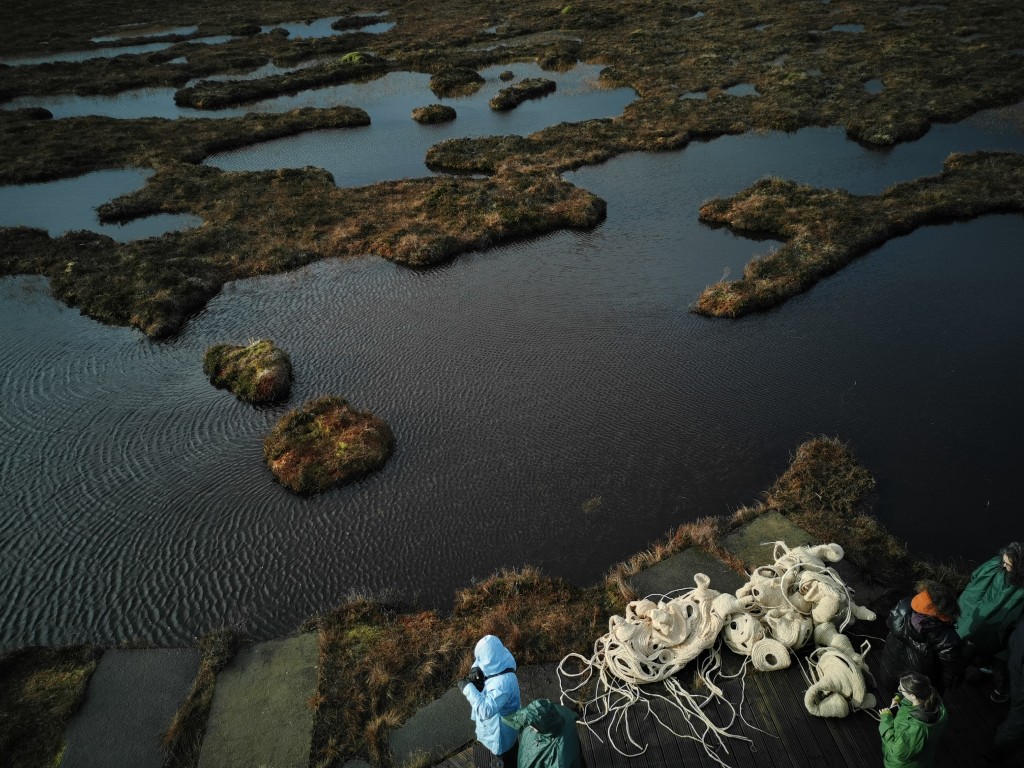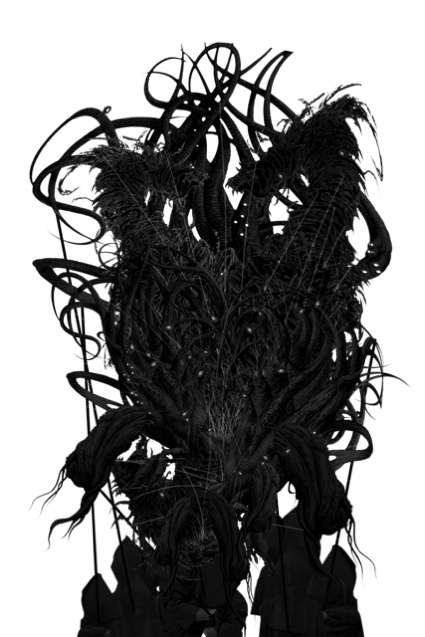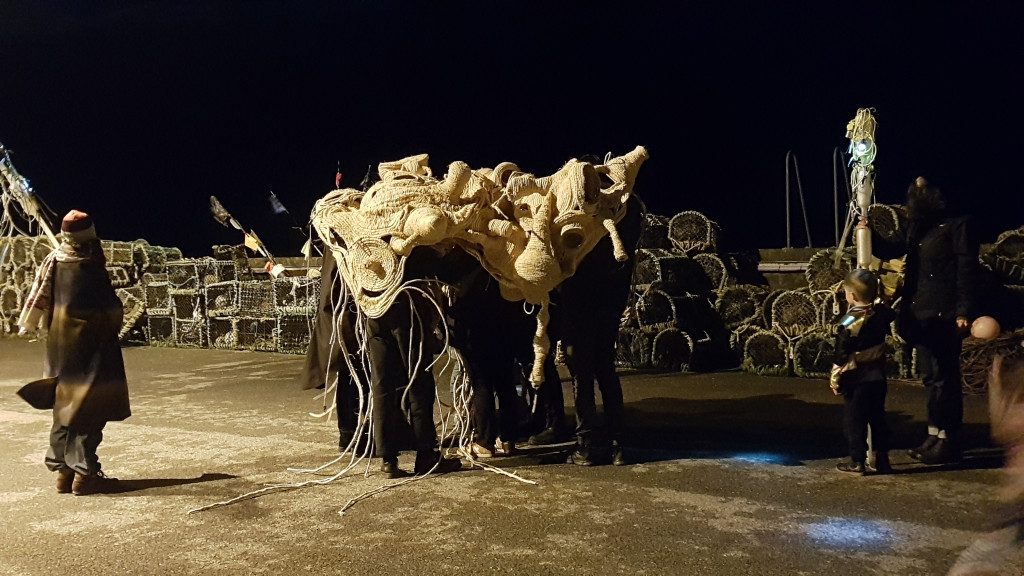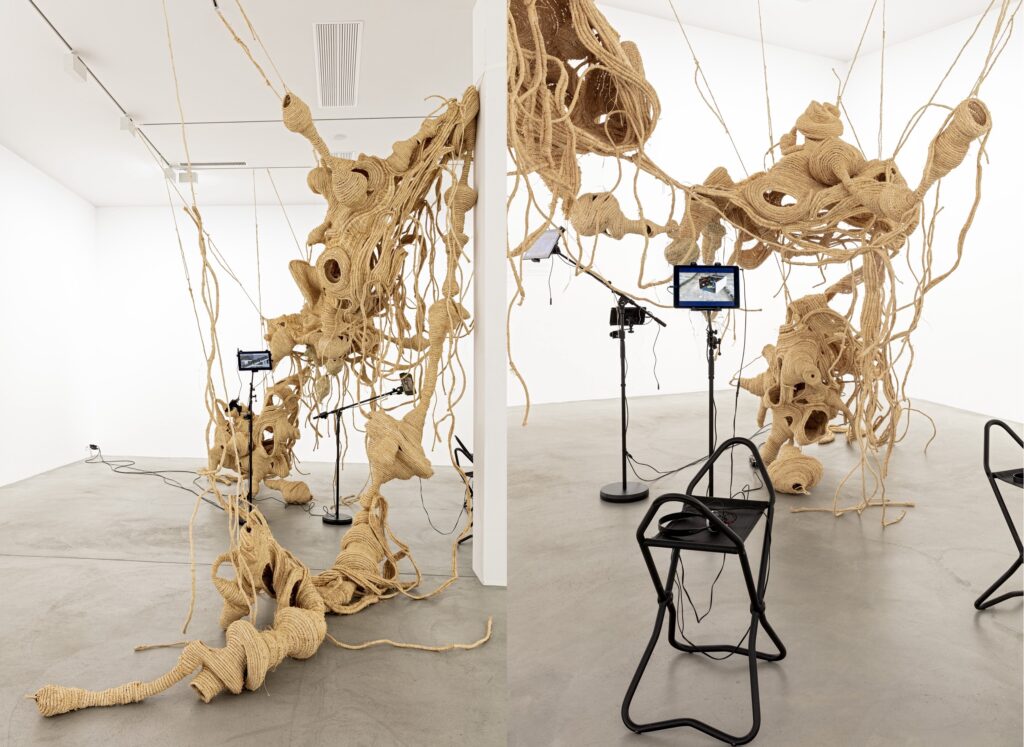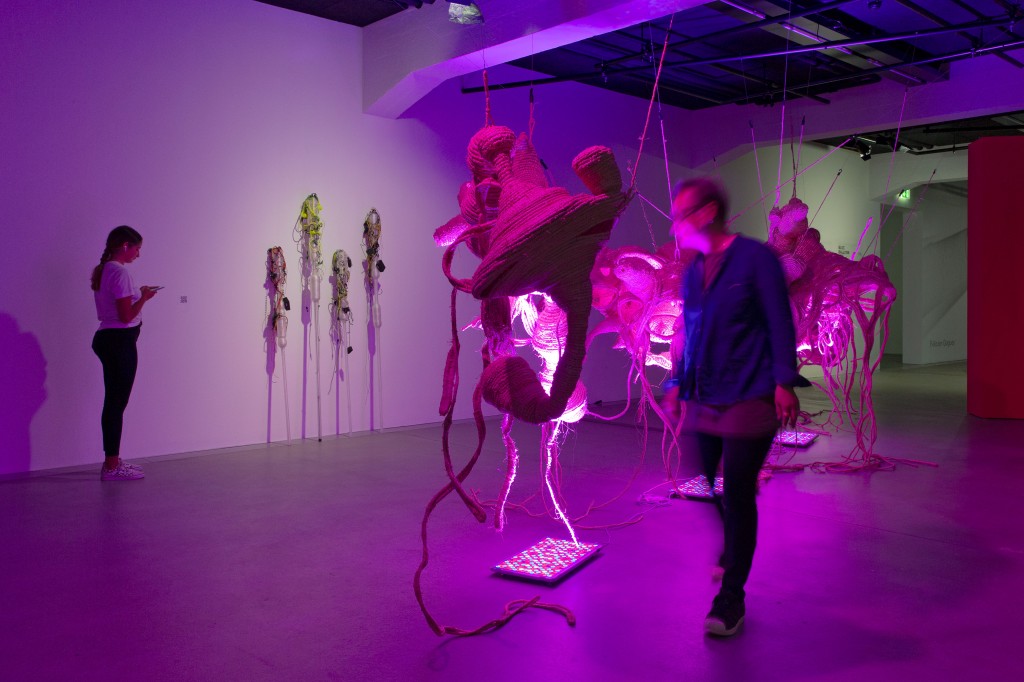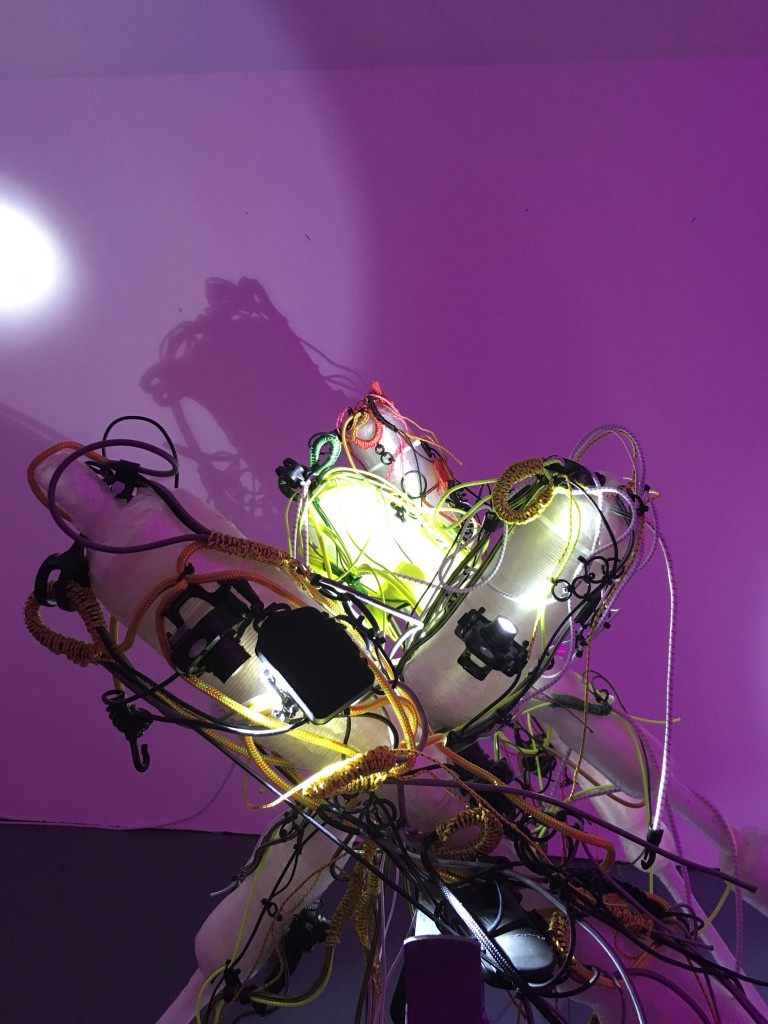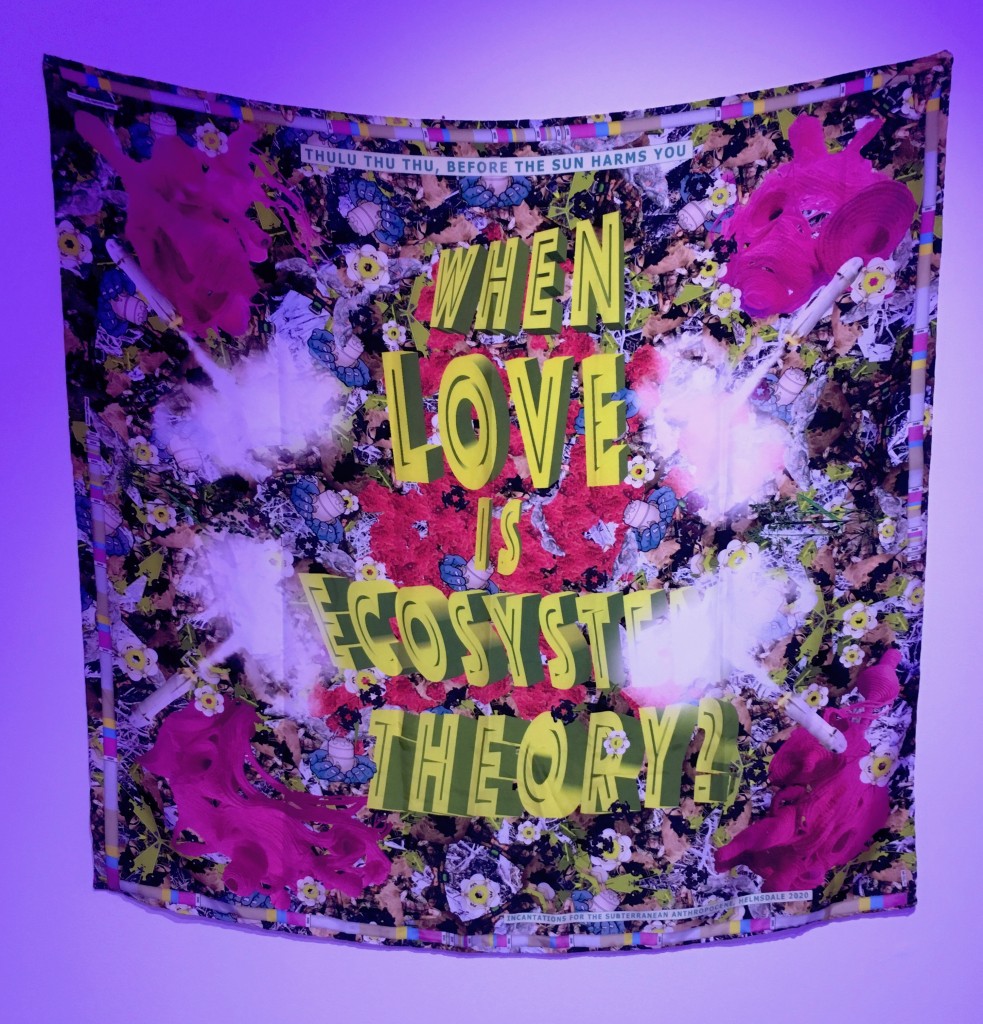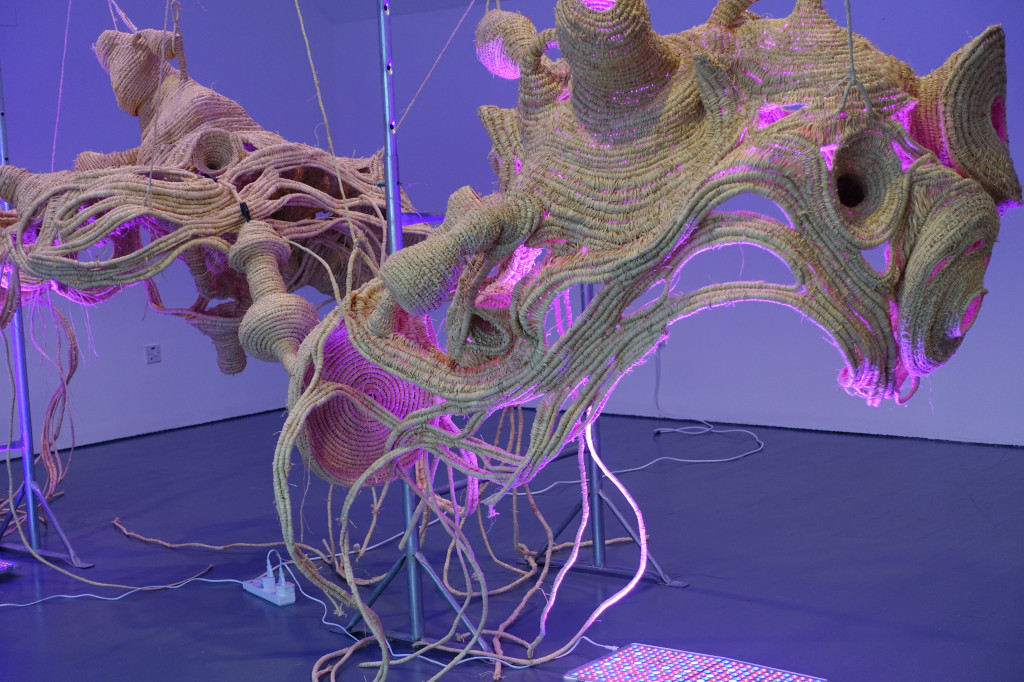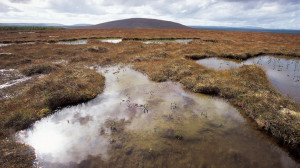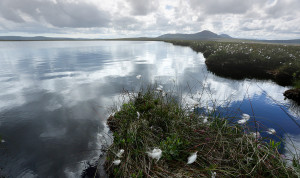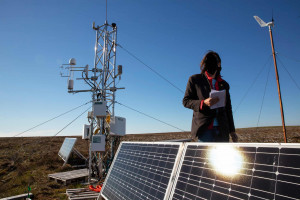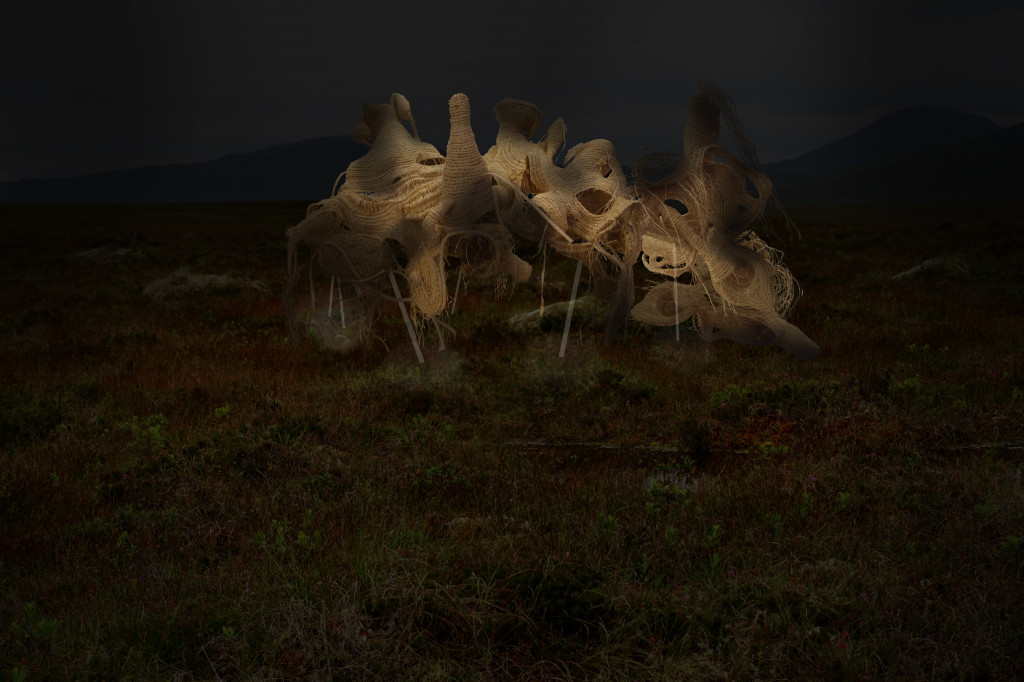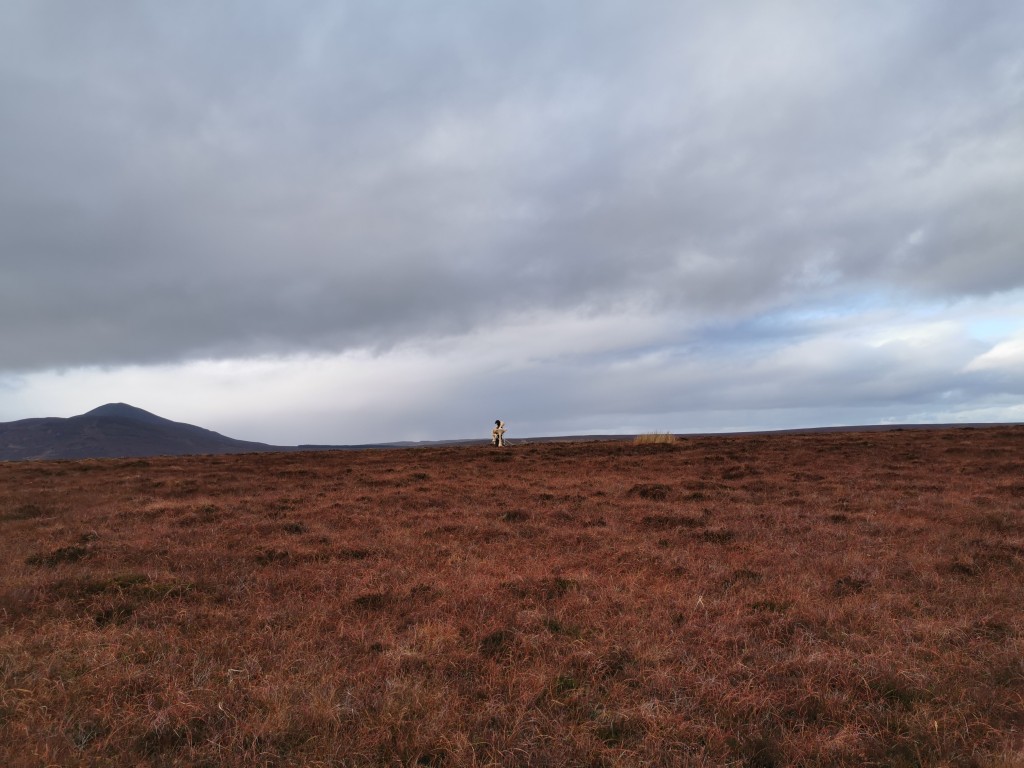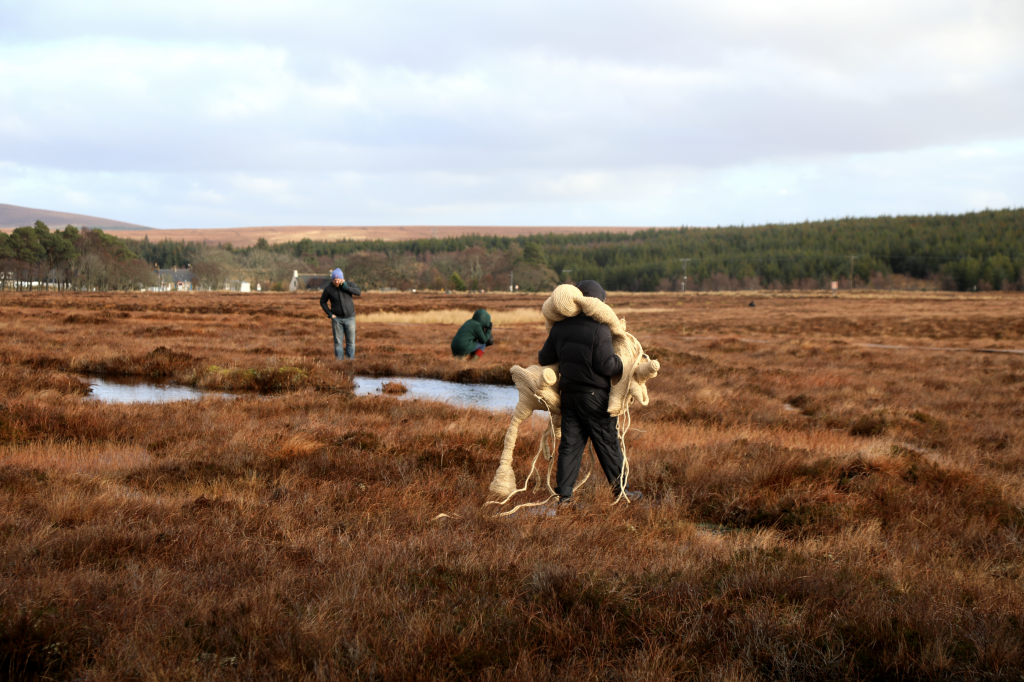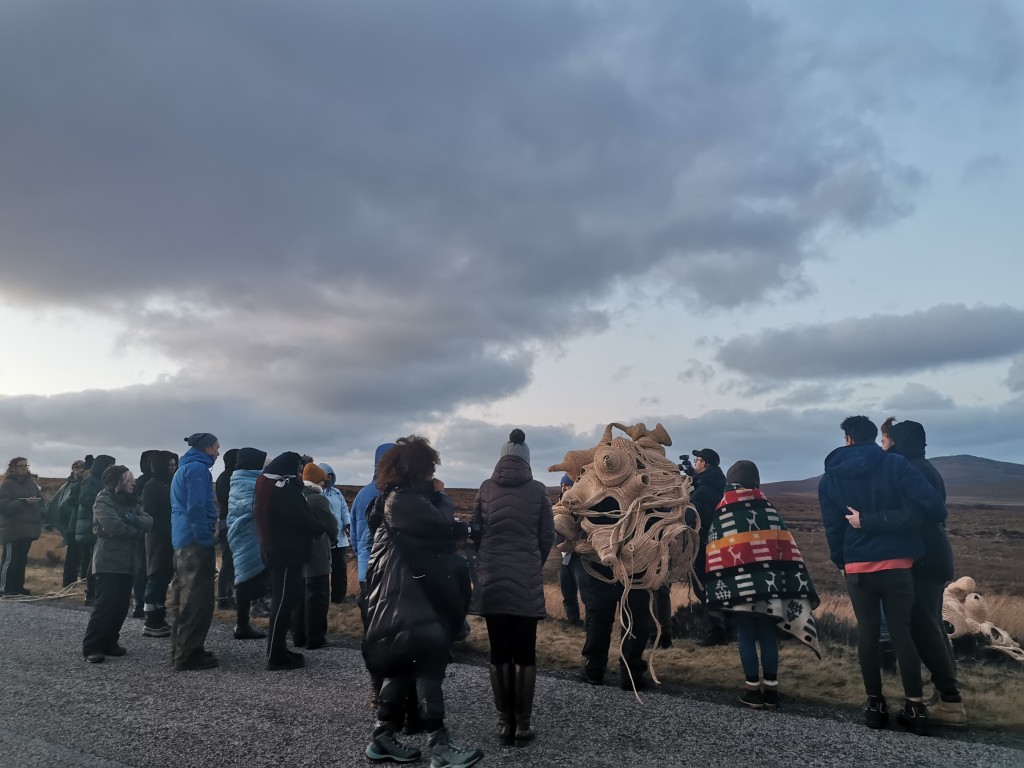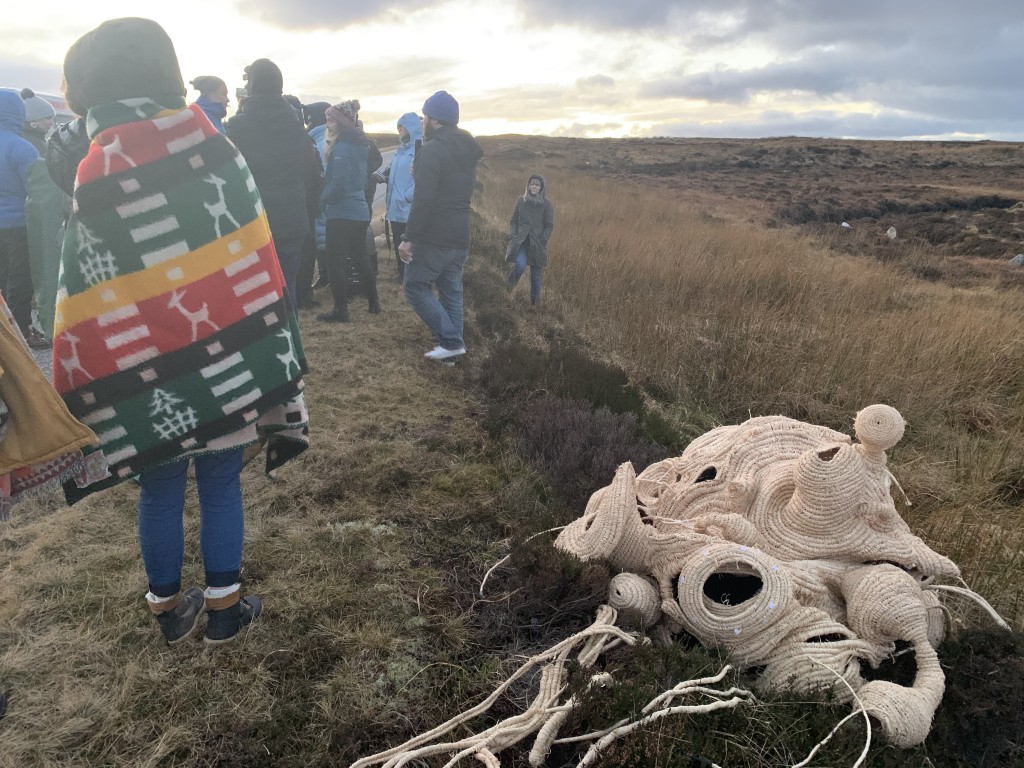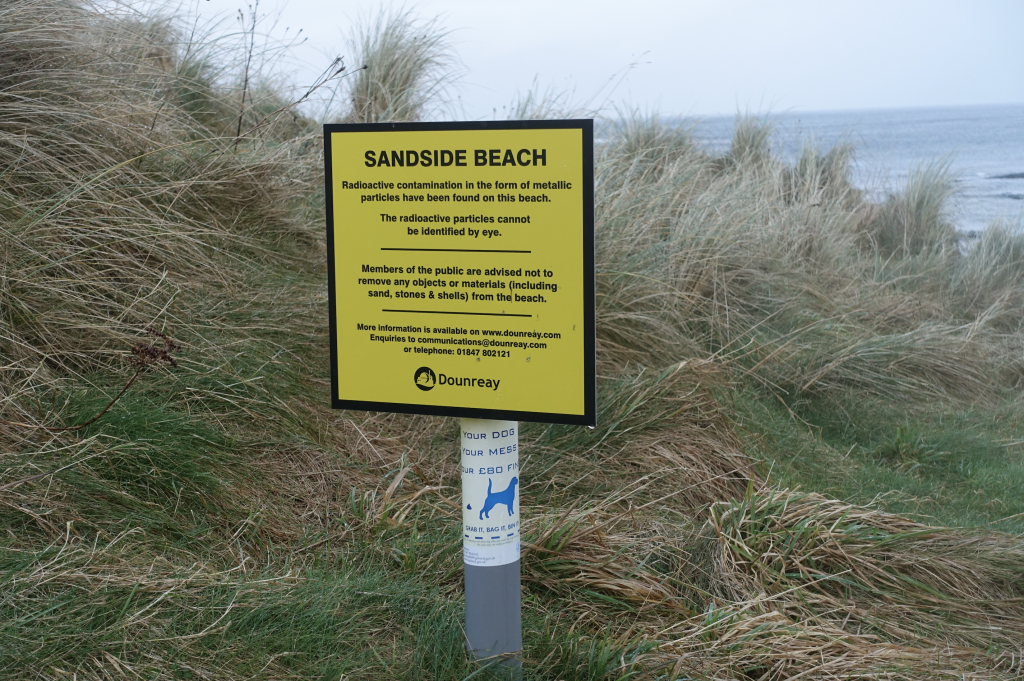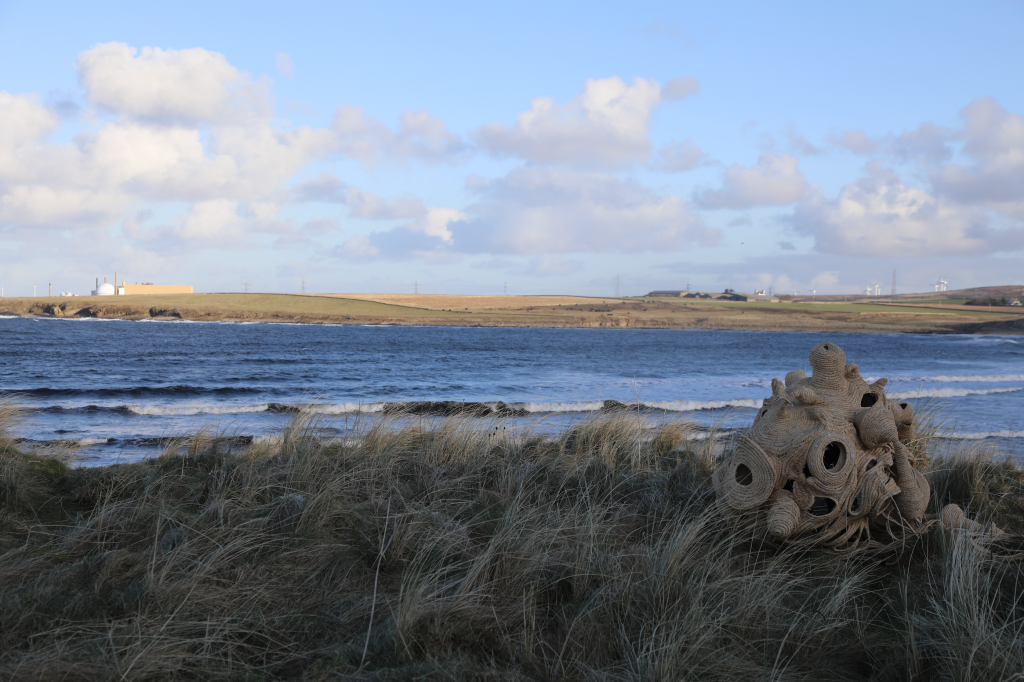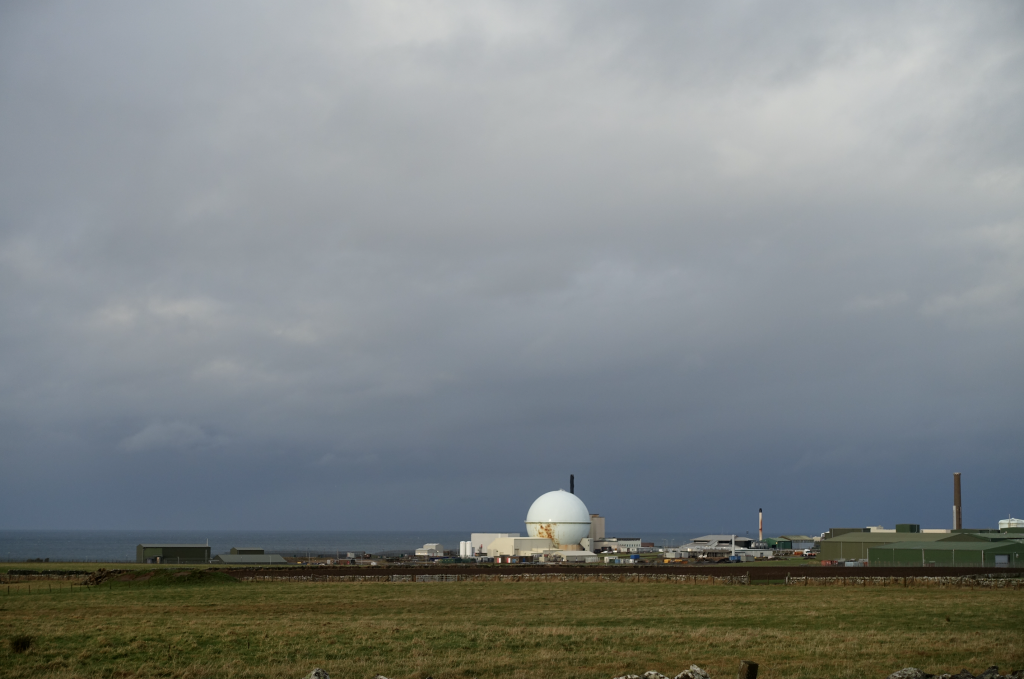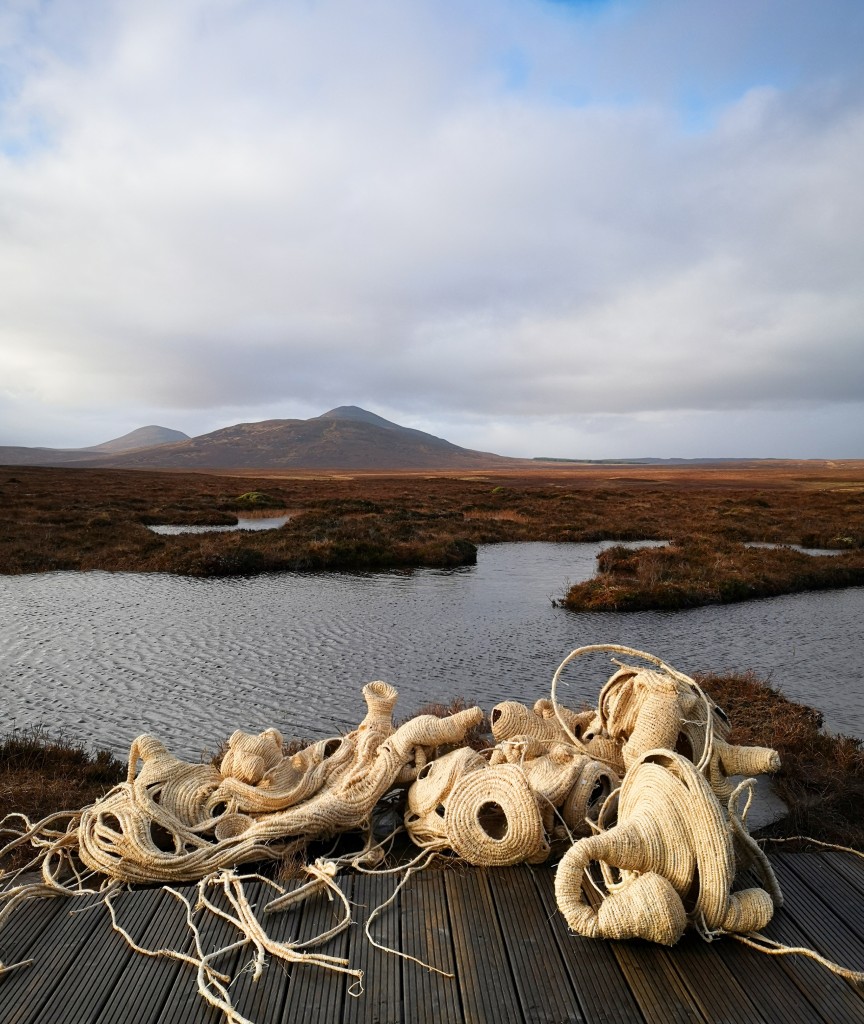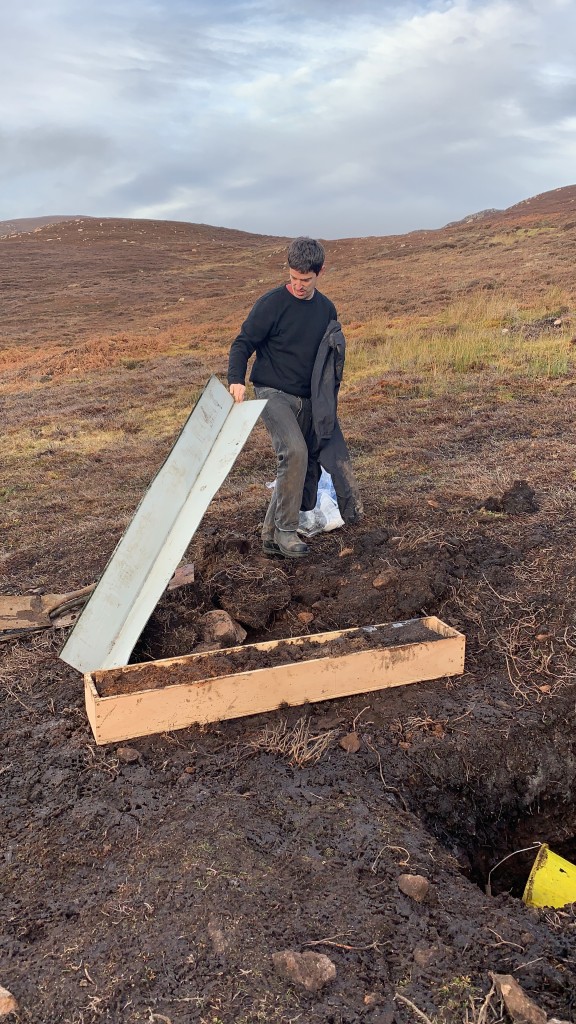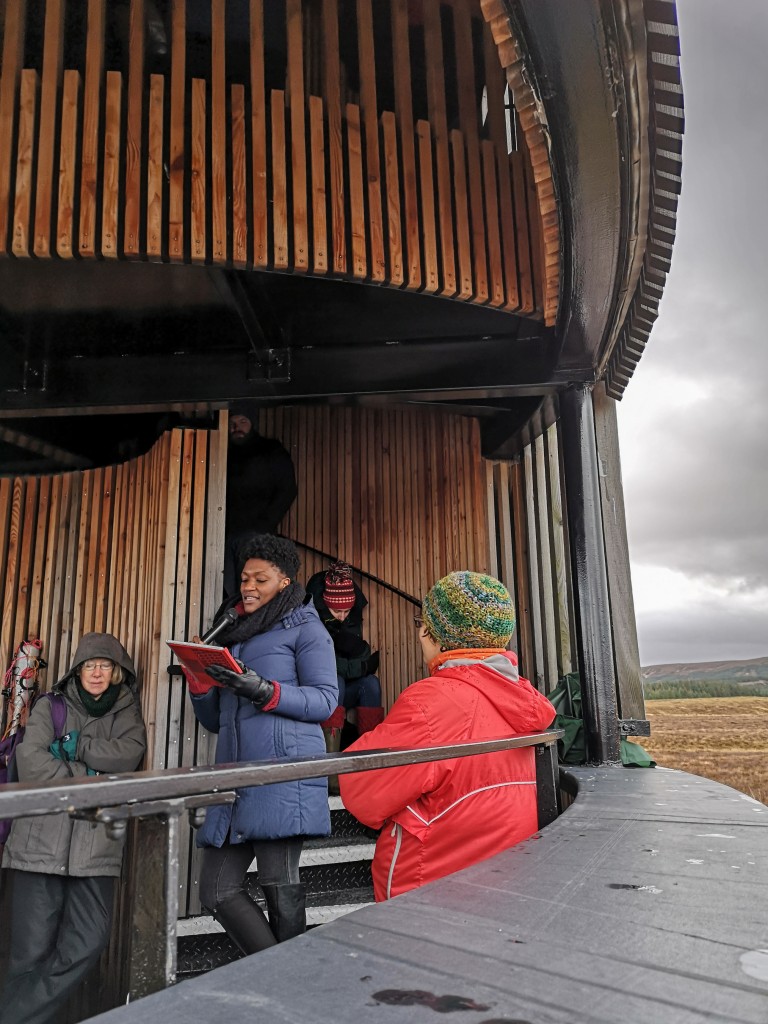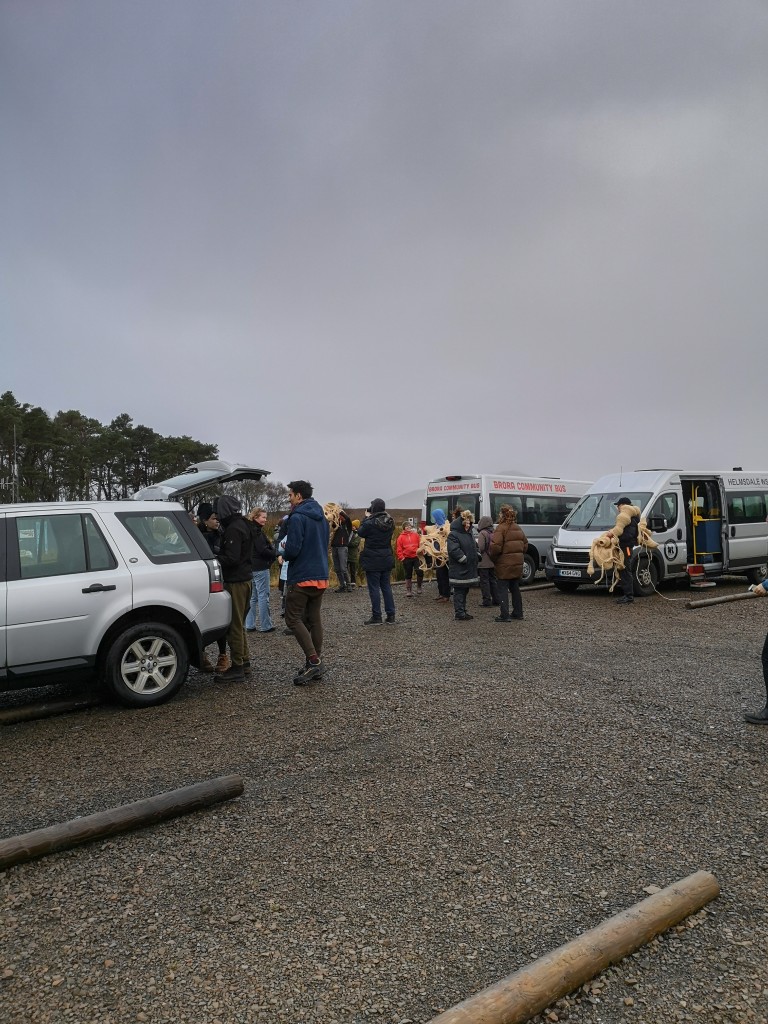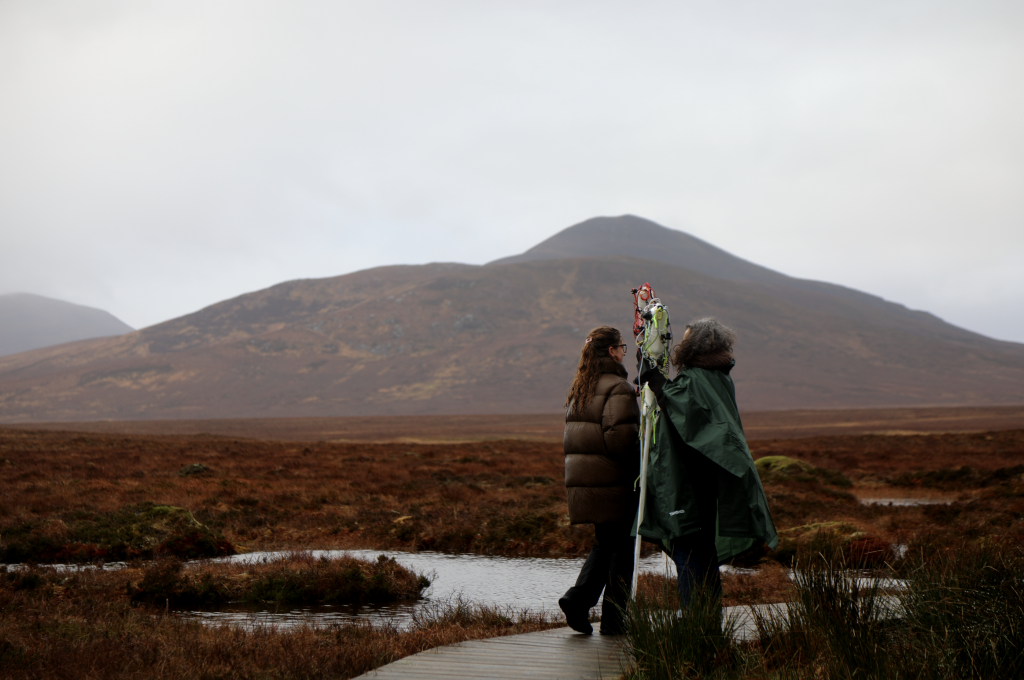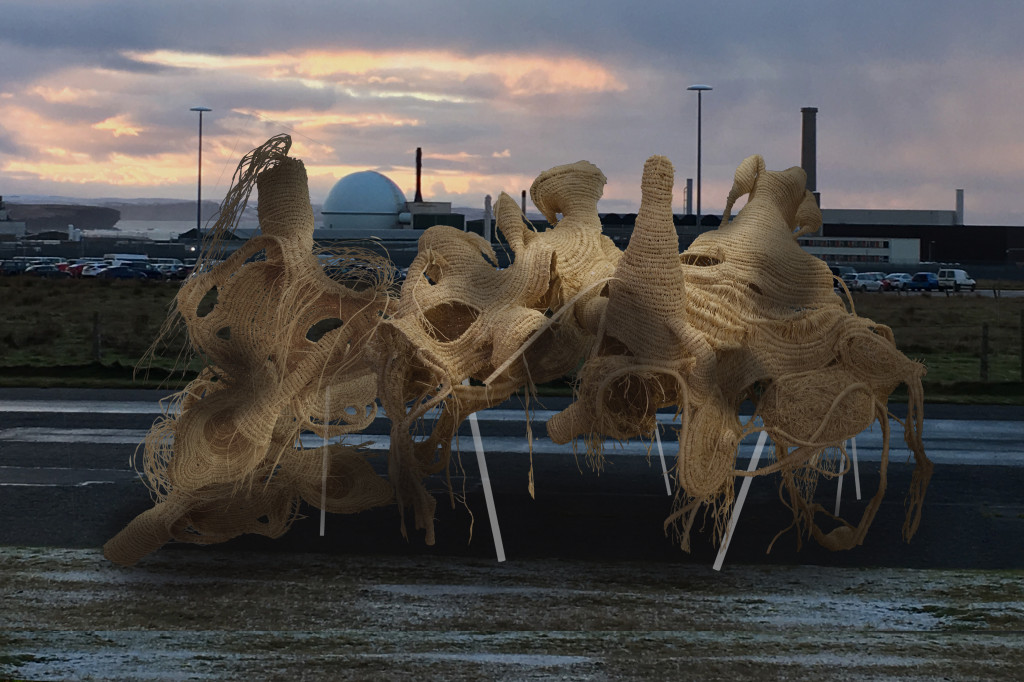Scottish Highlands, peat bogs, 2020
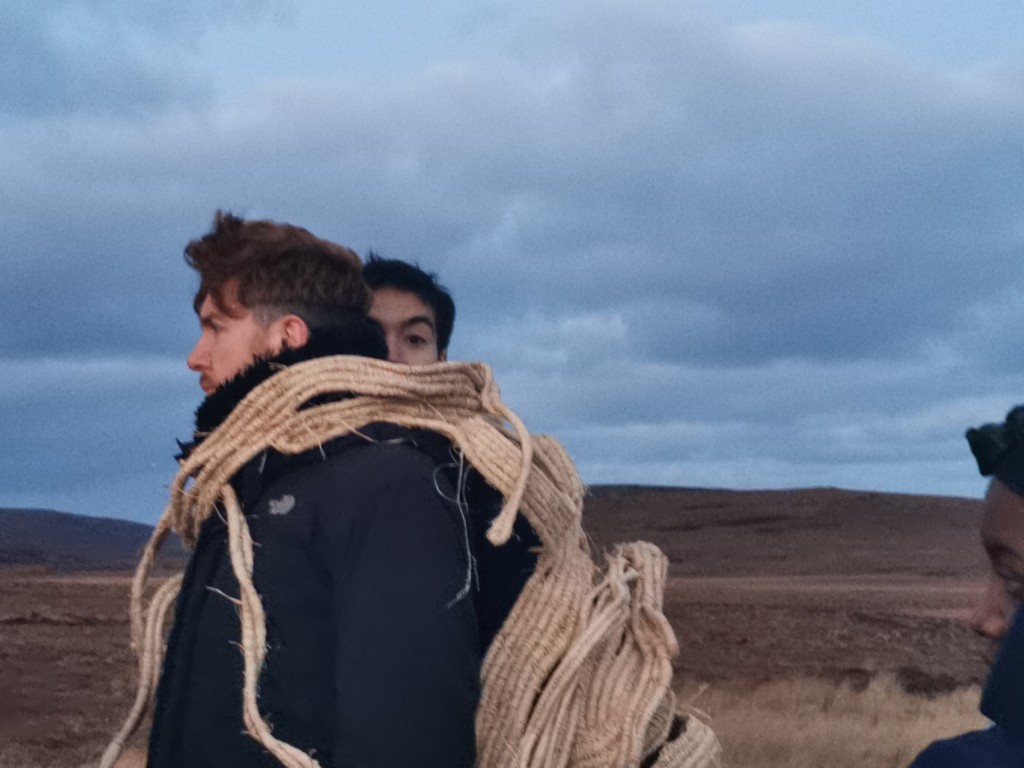
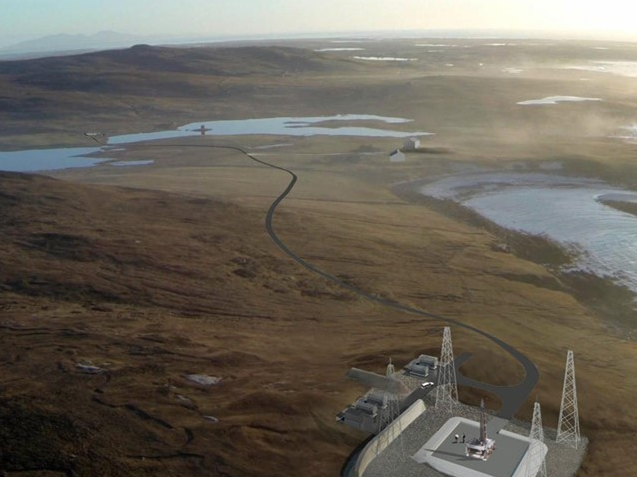
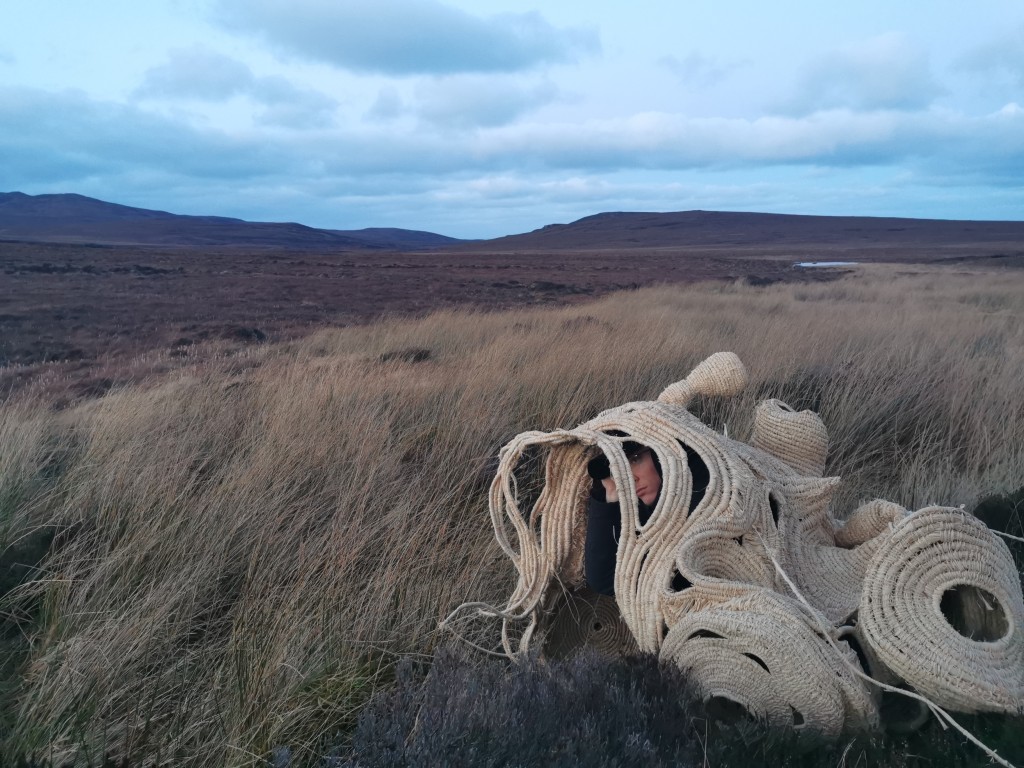
– thulhu thu thu, before the sun harms you: Timespan Arts Center, Helmsdale/Scotland 11.10.19-12.01.20; Symposium 10-12.1.20
knowbotiq with ira wilhelm, pablo alarcón
guests: Lamin Fofana, Ayesha Hameed/Elvin Brandhi, Ashanti Harris, Eric Huntley, Pedro Neves Marques/Raw Forest, Fundaciòn Mareia, Margarida Mendes, Odete, Romy Rüegger, Belinda Zhawi
curator: Sadie Young
– thulhu thu thu, before the sun harms you: HeK Basel, 27.5.-2.8.2020
– thulhu thu thu – LETTRE à moi, moi-même et le DAHOMEY: Fotomuseum Winterthur, 24.10.20.-14.2.21
– thulhu thu thu, before the sun harms you: Post Sensorium, National Library of Latvia, Riga 24.09. – 12.11.2021
Fotomuseum Winterthur
The artist duo knowbotiq were invited in 2019/20 by the Timespan Heritage and Art Center into the Scottish Highlands to develop a research on the ecologies of the peat bogs. The resulting project, „Thulu thu thu, before the sun harms you“, traced and unfolded past, present and future entanglements and narratives of materialities in the peat land, it’s inscribed asymmetric violence and the impacts of racialized capitalism. The artistic unfolding of the land developed performative acts of „collective sensing” – groups of people connected through a multitudinous object of braided plant fibers (Thulhu) to apprehend the vibrations of the peatlands.
Their explorations were accompanied by „sonic incantation” – knowbotiq invited other artists for producing a fractured series of sounds, songs and readings. The incantations were articulated from various planetary positions, invoking the inhumane politics of the Anthropocene.
HeK Basel 2020, Foto: Gina Folly
thulhu – ritual sticks, audioplayers of incantations silk foulard, digital print
Timespan 2020, collective rafia braidings, plant growing led lights
INCANTATIONS
The incantations became performative parts of the field symposium Molecular Intimacies, organized by Timespan, Helmsdale and knowbotiq and held from January 30th to February 2nd, 2020.
Incantation: Inscription, Lamin Fofana
On the process of de-solidifcation of soil in environmental catastrophes. Especially in West Africa and in the Caribbean (see 2017 Sierra Leone mudslides and hurricanes in the Caribbean — Puerto Rico, Dominica and Bahamas). I’m thinking about “Erosion”, soil erosion, mudslides, and the devastation of the environment and destruction of human life. Now to the voice, if the earth could speak… subterranean rumblings, peat harvests, topsoil, and mud. Lamin Fofana
She jump. Leap from me. Then I decide to count the endless names of stones. Rock leap, wall heart, rip eye, cease breadth, marl cut, blood leap, clay deep, coal dead, coal deep, never rot, never cease, sand high, bone dirt, dust hard, mud bird, mud fish, mud word, rock flower, coral water, coral heart, coral breath Tina Campt, Listening to Images (spoken by Sally Schoenfeldt)
Incantation: seafixation, Ayesha Hameed/Elvin Brandhi
Incantation: Tropical Poltergeist (for Adam and Zack Khalil), Pedro Neves Marques/Raw Forest
Incantation: The Playgrounds, Romy Rüegger
Incantation of Fear, Odete
This incantation is a kind of script to re-enact my childhood discovery of magic in the north of Portugal, where I come from. Surrounded by misty air and moustached ladies, I learned my way into my own body. Their superstitions became my path to a gendered body and that path lead me to a mythology far beneath the earth, far hidden in the fluids of my organism. Melodies and soundscapes functioned as a way to bridge the spirits and the reality I accessed daily. Lullabies were old enchantments, passed from mother to child. Dogs were organic entities of surveillance and warning – living beings that connected all the realms of the northern mountains. Humans were the guardians of the unspoken knowledge. Odete
Incantation: Entrega Sonora, Fundación Mareia
We can imagine the moments just by listening to the textures of the sound in the environment; in this occasion with sounds of the urban-rural landscapes of the Pacific, where the dawn gives us the welcome to one more day of life. The slow and fast weather, the rain that wets us like tears of joy, invites us to recognize the spaces where the colors inspire us and the singing of the voices are part of what we call music in different forms. We re-signify our biocultural territories with our existence.
Field Work: Loretta A.M Moreno, Paula O.G & Yei Moreno Editing: Yei Moreno
Musical themes used: -La escalera/Grupo Socavon de Timbiquí-Gime Chocó/ Negro Cecilio y su gente-Alabao/Elena Hinestroza
-Al pasito/La Contundencia
Incantation: aerial fire, Margarida Mendes
thulhu thu thu, before the sun harms you considers the necropolitical landscape of the Flow Country *, an ostensibly natural territory composed from a subterranean molecular system which circulates decay and energy across geological epochs. The bog lands are unearthly territories to imagine and speculate on future extinction and the limits of the planet. Here the ghosts of the white Anthropocene – land grabs, dispossession, forced migration, corporate extraction, environmental poisoning – are preserved in deep time and rendered inhuman materialities of the earth.
The bogs register and cannibalise the sedate and rapid transformations of local and planetary systems – clearances**, alien terraformings and racialised violence. Where human memory fails in anaerobic layers one can find precisely dated nano-traces of nuclear particles, volcanic ash and acid rain. Layers of monstrous molecular intimacies and scars of peat cuttings are crisscrossed by voidings and valorizations – while the metabolic processes of the sphagnum mosses***continually process parallel forms of induced living, non_living to recite matter and disturb time.
* A vast expanse of peatland blanket bog which is the largest in Europe and intensively protected as an important carbon sink in the fight against climate change. Large parts of the landscape are currently being “re- and denaturalized”, molecularly “repaired”, “restored” and “conserved”.
** During the C18th and C19th Highland Clearances, feudal landlords, enriched from their profits from colonial plantations, forced crofters off their land to move to newly built fishing villages or emigrate to the colonies in Guyana, Jamaica, India and Canada. Large moorland areas were drained, afforested and converted into sheep grazing and deer stalking territories.
*** Sphagnum mosses carpet the bogs and play a vital role in forming the peat. They conserve water and nutrients and over thousands of years, layers of dead sphagnum build up to form peat
The Highland landscape is a critical zone of capitalist modernism which has memorialised the ‘developmental’ logic of colonialism and continues its language of growth, extraction, exploitation and profit accumulation: a space-port is being built to launch satellites from North Sutherland; oversized wind farms generate lucrative returns for landowners; the powerful economic body of the white Scottish ancestry industry encourages a cleansing of Scotland’s imperial history and mandatory policies sanction forced migration from socially disadvantaged urban areas.
thulu thu thu, before the sun harms you confronts the inadequacy and injustices of the Anthropocenemodel, which collapses the whole of humanity’s intervention in the environment into an indivisible monolith, dislocating it from the asymmetric violence and impact of racialised capitalism.
..Whiteness became established as a right to geography, to take place, to traverse the globe and to extract from cultural, corporeal, and material registers, – while other bodies had to absorb the excess of that surplus as toxicity, pollution, and intensification of storms. Again, and again.. (A Billion Black Anthropocenes or None, Kathryn Yusoff)
thulhu thu thu, before the sun harms you is stage one of a long-term collaborative project, which overtime will build a collective network of participants and organisations from a diversity of disciplines, practices and geographies. During stage one, knowbotiq will produce a formless, anonymised and undefined object out of collectively braided raffia fibres. Through a series of community workshops with friends, guests, sentients of the bogs, the undefined will be contaminated by multiplying knowledges and practices. It will be moved anonymised and collective, in collaboration with performer Ashanti Harris through local zones: the surveillance technology stations at the restoration zone of the carbon sink bogs; the military space port site; the denuclearisation zone and the renewable energy production zone of the wind farm.
The undefined will dis/assemble bodies and traces of the soil; it will invent intimacies and gestures of care towards the subterranean and transgress translocal relations. The grammar of the zones will be transcribed through anonymised coordinated action, crystallising their form into the material and movement. The collective coordinated and opaque movements will be triggered and led by various incantations, a fractured series of sounds, songs, readings and technocosmologies which respond to the politics of the Anthropocene.
thulhu thu thu, before the sun harms you disturbs the white jurisdiction of the planet and will search for and cohabit different imaginaries to experience the political, biophysical, socio-cultural and economic dimensions of nature.
Molecular Intimacies, when love is ecosystem theory
Timespan Art Center Helmsdale, 31.1.-2.2.20
Field Symposium curated by Sadie Young and knowbotiq
https://timespan.org.uk/programme/events/symposium-molecular-intimacies/
is a field and performance symposium associated with knowbotiq’s project thulu thu thu, before the sun harms you, to critically engage and participate in the contaminated landscapes of the Scottish Highlands and the cultural, technological, political and social apparatus which govern them. Bringing together researchers, artists, performers, scientists and historians, the symposium will approach specific local energy zones – the carbon sequestration peatland blanket bog; the irradiated decommissioned nuclear plant and the future site of the first UK spaceport – to consider scales and depths of time, natural and artificial mutations, residues of colonial histories, imperceptible biodata, technological machinations and traumatic cultural memories, which are inscribed in the land that we are embedded in and composed of.
The undefined raffia will be operated , at the various energy zones, as a mode of collective enquiry to penetrate and participate in the current ecological condition. The collective movement will be led by various incantations, a fractured series of sounds, songs, readings and technocosmologies which respond to the politics of the Anthropocene.
On Friday, Ama Josephine Budge will present a performative lecture on climate justice and speculative fiction, followed by a collective and participatory Algerian feast from Soul Food Sisters.
On Saturday, we’re out on the field in the community bus, guided by a recording from historian David Alston on Sutherland’s colonial history and its relationship to the Highland Clearances. Our first stop is the monitoring stations at the peatland bogs for an improvised collective performance led by Ashanti Harris and a discussion on carbon politics between peat ecologist Roxane Andersen and environmental policy researcher Yolanda Ariadne Collins. Next, we’re travelling to the site of the UK’s first space-port led by engineer and philosopher Ramon Amaro to discuss the racialisation of datascapes and territories. We’re then travelling to the beach at decommissioned Dounreay nuclear plant for a nuclear energy inspired ‘end of the world’ picnic from Soul Food Sisters, a radioactive seaside performance from Ashanti Harris and a participatory lecture on soil contamination and colonial legacies from researcher and architect João Prates Vital.
We’re finishing off Saturday’s big day out with a queer performance from Belinda Zhawi.
Bios
David Alston is a historian who researches the role of Highland Scots in the slave plantations of Guyana before emancipation in 1834. He is one of the first Scottish historians to draw attention to the prominent role of Scots in the slave trade and the plantation economies of the Caribbean.
Ramon Amaro’s work emerges at the convergence of Blackness, psychopathology and the critique of computation reason. Dr. Amaro draws on Frantz Fanon’s theories of sociogenic alienation to problematize the de-localisation of the Black psyché in contemporary computational systems such as machine learning and generative adversarial (neural) networks. Ramon Amaro pulls away from notions of psychic negation, as set forth by the Fanonian model of representation, aesthetics and racial transference, to investigate new more affirmative relations between the Black sense of self and racialised digital ecologies. His ultimate aim is to develop new methodologies for the study of race and technology by drawing on the generative potential of non linearity in machine learning research.
Roxane Andersen is a Research Fellow based at the Environmental Research Institute,
part of the University of the Highlands and Islands, where she leads the ‘Carbon, Water and Climate’ theme. Her applied research focuses on evaluating above-and-below ground communities and biochemical processes in disturbed, natural and restored systems, with a focus on northern peatlands.
Ama Josephine Budge is a Speculative Writer, Artist, Curator and Pleasure Activist whose work navigates intimate explorations of race, art, ecology and feminism, working to activate movements that catalyse human rights, environmental evolutions and troublesomely queered identities. Ama is a Guest Curator with Theatre Deli and a PhD candidate in Psychosocial Studies with Dr Gail Lewis at Birkbeck. Her research takes a queer, decolonial approach to challenging climate colonialism in Sub-Saharan Africa with a particular focus on inherently environmentalist pleasure practices in Ghana and Kenya.
Yolanda Ariadne Collins is particularly interested in climate change governance and politics. Her research adopts post-structural approaches to interrogating the intersection of power, development and neoliberalism in global efforts to conserve tropical rainforests. Her doctoral research focused on the implementation of the Reducing Emissions from Deforestation and forest Degradation (REDD+) initiative in Guyana and Suriname.
João Prates Vital is an architect whose research investigates the mobilisation of soils as a laboratory for economic, juridical, and environmental experiments that enabled the transition from colonial forms of power towards neoliberal governance. From the perspective of what I term “soil politics”, colonisation operates through the land, and continues to materialise in the present with the modification of soil’s chemical properties.
Belinda Zhawi is a Zimbabwean born writer & educator currently based in London. Her work explores Afro-diasporic research & narratives; the impact of colonialism across Africa; the immigrant experience in Britain and how art & education can be used as intersectional tools. She was the 2016/17 Institute of Contemporary Arts Associate Poet & is co-founder of, literary arts platform, BORN::FREE. Belinda is the author of Small Inheritances (ignitionpress, 2018).
photo credits: Anyuta Gillespie, Sadie Young, knowbotiq
biographies
Lamin Fofana is an electronic producer, DJ and artist. His instrumental electronic music contrasts the reality of our world with what’s beyond and explores questions of movement, migration, alienation, and belonging. He runs the Sci-Fi & Fantasy label which links techno back to the real world, to bridge aesthetics with socio-economics, with ocean currents, with stale bread and dirty water.
Raw Forest is one of Margarida Magalhães’ alter-egos that was born around 2010 in cybernetic space. Lately, her work has been manifesting itself mostly through sound, creating landscapes and environments by the means of immersive electronic music. Her landscapes arise from the ruins of past digital utopias and her music has been more and more influenced by this environment of disillusion and collapse, shaped by the present dystopian scenery.
Mareia Foundation, a women collective of artists/humanists who work with participatory research-action with a focus on race, gender, environmental and sonic-embodiment. It is art as a vehicle of social transformation, for a revitalisation of ancestral practices/knowledges through ethnoeducative and emancipatory methodologies, and of holistic healing that empowers the resilience and dignity of the Colombian Pacific.
Ayesha Hameed’s moving image, performance and written work explore contemporary borders and migration, critical race theory, Walter Benjamin and visual cultures of the Black Atlantic. Her projects Black Atlantis and A Rough History (of the destruction of fingerprints) have been performed and exhibited internationally. She is the co-editor of Futures and Fictions (Repeater 2017), and is currently the Programme Leader for the MA in Contemporary Art Theory in the Department of Visual Cultures at Goldsmiths University of London. Ayesha is collaborating with Elvin Brandhi, an improvising lyricist, producer and sound artist from Bridgend Wales, making auto-tune blast beats from field recordings, tapes, instruments and voice. Live shows are unyielding bursts of erupting animation where her caustic stream of consciousness cavorts with restless, glitched out heaviness. Other main projects include Yeah You, INSIN in collaboration with Bashar Suileman.
Ashanti Harris is a visual artist, teacher and researcher, working with dance, performance and installation. Ashanti’s work focuses on themes of mobilities – the movement of people, ideas and things as well as the broader social implications of these movements, specifically in relation to the diaspora of West Africa and The Caribbean.
Elvin Brandhi an improvising lyricist, producer and sound artist from Bridgend Wales, making auto-tune blast beats from field recordings, tapes, instruments and voice. Live shows are unyielding bursts of erupting animation where her caustic stream of consciousness cavorts with restless, glitched out heaviness. Other main projects include Yeah You, INSIN in collaboration with Bashar Suileman.
Eric Huntley, activist, publisher and author, was born in 1929 in British Guiana and emigrated to Britain in the late 1950s. Together with his wife, Jessica, the Huntleys not only participated in, but also led many significant grassroots campaigns, including becoming founder members of the Caribbean Education and Community Workers Association, the Black Parents Movement, the organisers of the 1981 Black People’s Day of Action march and the Supplementary School Movement, created to supplement the shortcomings of an education system that was failing Black children. Alongside New Beacon Books (founded in 1966) and Allison & Busby (founded in 1967), Eric and Jessica founded Bogle-L’Ouverture Publications (BLP), one of the first Black-owned independent publishing companies in the UK, founded as a direct response to the banning from Jamaica of historian and scholar Walter Rodney.
Pedro Neves Marques is a visual artist, filmmaker, and writer. Born in Lisbon, Portugal, he lives in New York since 2012. Often times placed in Brazil, his work ranges from fiction, in the form of narrative films and short stories, to theoretical writings between art, cinema, and anthropology. Heavily influenced by cosmopolitics and feminist historians of science, his stories highlight the clash between disputing images of nature, technology, and gender. In all of them, science fiction is key to thinking both past histories of colonization and the possibility of non-Western futures.
Odete is a performer, writer, visual artist and DJ who uses her own life—particularly her experience as a trans woman—as material for her practice. Her DJ sets draw out the relationships between different points in queer music history using vogue claps, punk screams and diva vocals, pop, politics and erratically pounding beats.
Romy Rüegger develops performances, audio works and writings that consider how we move and communicate in social space, and the institutions and structures that control and restrict these actions. Her work is often site-specific and made in collaboration with other artists, creating sites of shared listening, encounter and unlearning that counter accepted narratives and value systems.
Tejal Shah is some kind of an artist working on some kind of nature. She hovers at the intersections of queer-ecologies, feminism and the non-dual middle way philosophy as she continues to explore unbecoming. Her work is an invitation to move away from violence and towards love and cooperation.
Belinda Zhawi is a Zimbabwean born writer & educator currently based in London. Her work explores Afro-diasporic research & narratives; the impact of colonialism across Africa; the immigrant experience in Britain and how art & education can be used as intersectional tools. She was the 2016/17 Institute of Contemporary Arts Associate Poet & is co-founder of, literary arts platform, BORN::FREE. Belinda is the author of Small Inheritances (ignitionpress, 2018).

